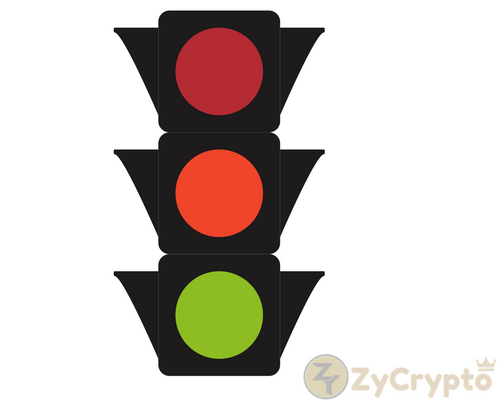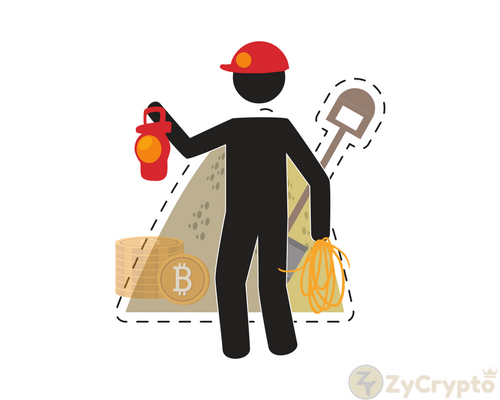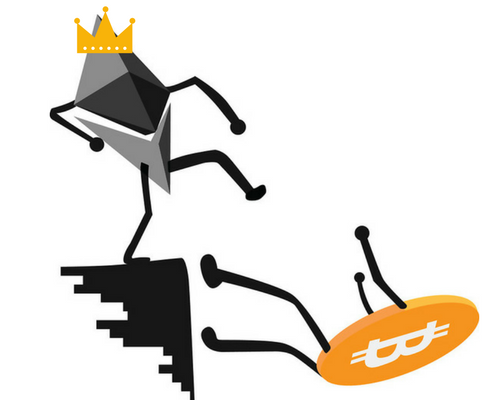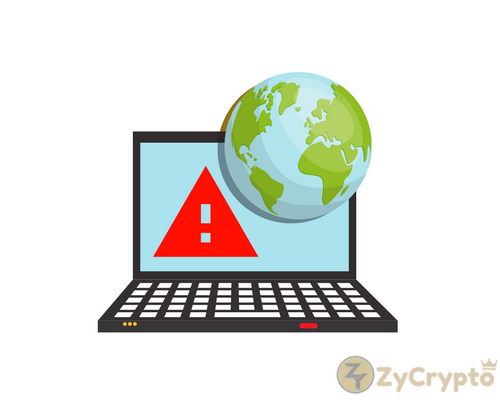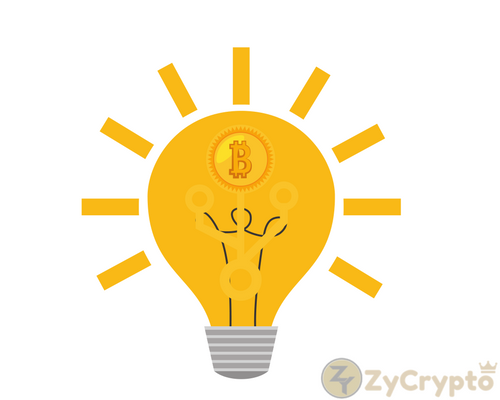Cryptocurrencies market has become huge very rapidly, with a growing number of strong investors (those who invest large amounts of money) and occasional ones (those who invest small amounts from their homes without risking a lot of assets) getting involved every day.
Such behavior (bullish by nature until now) has contributed to the fact that today it is perhaps more common for ordinary people to hear conversations about bitcoin tan it is to hear about futures, commodities or the Nasdaq, for example.
But if there is something that has worried people is that Bitcoin has increased its value so much in such a short time that perhaps the astronomical profit margins of which we used to read in forums and media is very unlikely to be maintained.
Therefore, it is difficult to observe an increase in the value of bitcoin similar to the one observed last year. The same fate follows other top large marketcap coins such as ETH, XRP and LTC.
But being this a still growing market and with so many options to invest, Mr Lee advises the “newcomers” to look for small marketcap coins, since it is very possible that their value in short term will increase in considerable percentages, thus said in an interview for News Channel CNBC yesterday.
This opinion is the same as at the time it was tweeted by John McAfee, who said it was “easier for 3 cent coins to go 3 dollars, so it is for $ 300 coin to go $ 30000”
So if you lost the hype of bitcoin’s bullish wave, you may want to consider investing in smaller, serious cryptocurrencies, such as EOS, NEO and XRB (to cite a few)
Raiblocks (XRB) have been on a bullish run of almost 600%, also having a known and promising team behind it. EOS went from 0.5 $ to 11.76 $ in just 3 months (8358 satoshis to 121333 satoshis), and NEO did its part going from 8.64 $ to a record 162.11% in just 6 months.
But if you like to go into the deep unknown terrain of coins with little to no information at all (known by the slang of “shitcoins”), you could get yourself an even bigger profit (with great risk taken, of course).
Just as an example, LindaCoin (LINDA) went from 0.000093 $ to 0.01234 $ in 2 months (an outstanding profit of 13268.8%) and a funny TittieCoin (TTC) went from just 1 satoshi to 54 satoshis in a month (5400%).
Such percentage risings are almost impossible to bitcoin since it would represent a bullish run from 10000 $ to 60000 $ in order to get 600% profit, which is a number not predicted by any serious analyst (not right now). Bitcoin Price predictions go around 25K for the end of the 2018 according to Mr Lee.
The rotation of cryptocurrencies (small tokens becoming important in marketcap) allows investors who missed the initial wave of digital currency investment with bitcoin to invest in other digital currency assets, Lee said.
And while bitcoin’s specialty is storage of value such as “digital gold,” other digital coins are offering other options, such as that of payment systems and risk with big profit opportunities for early adopters
Tom Lee’s strongest picks to invest according to the interview are EOS, BTC and ETH
2018 could be the year to invest in small marketcap tokens waiting for a great “crypto rotation” says bitcoin expert Thomas Lee
South Korea comes up with new real-names accounting system
South Korea introduced a new cryptocurrency account system, finishing the present practice that allowed for anonymous trading. This will enforce the users and traders to open an account with real names.
Real Names Accounting system
Real name accounting system, focuses on every users and traders involved in cryptocurrency trading to convert their existing anonymous account into real name accounts.
This implementation of new real name accounts could possibly turn effective for the government to end the use of anonymous accounts in transaction which would prevent the coins for use in criminal and illegal activities such as money laundering ,etc.
According to report, Country’s six major banks will participate into it. Participating banks are Shinhan Bank, Industrial Bank of Korea, Nonghyup Bank, Hana Bank, Kookmin Bank and Gwangju Bank. Thus probably cryptocurrency accounts can only be registered with banks, which exchange is trading with.
Yonhap news reported
“Opening cryptocurrency accounts has been banned for weeks while the banks have installed the system, which ensures only real-name bank accounts and matching accounts at cryptocurrency exchanges for deposits and withdrawals.”
Underage and Foreigner investors are not allowed and are banned from opening cryptocurrency accounts.And System willing need cryptocurrency exchanges to share all transaction data with banks. Traders who tries to keep depositing its existing account regardless of following the process to open a new bank account, will be fined.
Identity validation
Identity verification such as real names of the bank account holder is only possible if the users/ traders holds an account with the bank, that is used by trading company.
Opening an account would need all the required documents such as Utility bills, credit card bills, payroll etc.
Hence these documents will provide a strong and serious validation of identity. And will prevent forgery.
Growing Business for Banks
Maekyung, Maeil Business Newspaper wrote that “The market forecasted that there will be a lot of requests for opening new accounts following the introduction of the real-name system,”.
However the expected changes didn’t found at least on the first day of announcement.
Expected growth of Business for Bank could be true as per the statistics. Bithumb trades with Nonghyup Bank and Shinhan Bank, Upbit with Industrial Bank of Korea (IBK), Coinone with Nonghyup Bank, and Korbit with Shinhan Bank.
Hankyung reported
“Looking at the number of virtual accounts that are subject to the real-name system conversion, IBK has 570,000, Nonghyup Bank 1 million, and Shinhan Bank 140,000.”
Small Exchanges more likely to suffer
Conversion of anonymous accounts into real accounts could cause distotion, which are likely to be suffered by Small and medium sized cryptocurrency excahnges. As banks will be reluctant to issue new accounts for them and they cannot use their corporate accounts.
10 Companies including Coinnest,Coinlink, Eyalabs etc uses corporate accounts instead of virtual accounts. With this new system, they have fallen into blind spot of regulation.
These Things Are Harmful to Cryptocurrency and Can Cripple the Market
The cryptocurrency market is greatly affected by events surrounding it. It’s often easy to forget, be it a newbie or veteran investor—this technology, this market, is all still very vulnerable and not immune to its ups and downs. Cryptocurrency is not untouchable or safe from volatility, nor is it, like most anything of value, a surefire way to reach personal financial goals.
Bitcoin, and altcoins in general, have surely shown the world what is possible however. And certainly for a lot of people, it has helped, and continues to help them reach financial success. But there are some factors which can lead to another dip or worse, knocking the crypto market completely on its rocket boosters—but don’t worry, no matter what happens, cryptocurrency has always managed to find its way back.
South Korea may have just cracked on the code on the regulation of Bitcoin. China and Western nations are wrestling with how to regulate it too. Deemed as “assets” by the United States’ Internal Revenue Service, it wasn’t long ago Coinbase agreed to hand over crypto holders’ account information to the IRS. Once, and if ever, global political systems find a way to regulate digital currency, it will affect the market. But just how exactly remains to be seen.
Dark Wallets are out there. And as long as they exist, the potential funding of crime and terror does as well. With the Dark Wallet, transactions take place but “off the grid”, so-to-say. Money laundering and terrorist funding is made easy. If acts of terror are found to be funded by cryptocurrency, the market will quickly feel the backlash.
Governments will make the argument crypto is harmful and harsh measures might be taken to prevent such terrorist funding. In this hypothetical situation, it’s assumed cryptocurrency itself would be blamed rather than the Dark Wallet. Any crypto-funded terrorist acts could harm the market.
A vast majority of transfers and cryptocurrency transactions, across numerous exchanges, involve credit cards. This means a ton of investors are funding their crypto holdings with credit. And as was shown during the housing boom and bust from 2007-2008, too much credit can be harmful.
Especially when investors never pay their debt. Sometimes, investors find themselves selling off their crypto to pay off their credit card debt—a fairly viscous cycle to repeat. If the market becomes flooded with credit card debt, this can wholly affect and harm it.
There will always be existing negative factors capable of harming the market. Safety is priority and as the charts dip and rise, the technology employed to protect users will continue to strengthen.
Japan Set to Sanitize its Crypto Space After Coincheck Saga
The Japanese authorities have started a new series of investigations on Monday aimed at sanitizing crypto exchanges who still have loopholes in their operations. The move comes after a famous Japanese cryptocurrency exchange was hacked and over $500 million worth of XEM was stolen.
According to Reuters, Japan’s Financial Services Agency has told Coincheck to upgrade its security with immediate effect and has also announced plans to hold meetings with other *****exchanges. All issues raised during the hearings will be thoroughly investigated.
Japan remains the number one country with favorable cryptocurrency regulations. Since April 2017 to date, 16 cryptocurrency exchanges have been registered with the FSA, while 16 more exchanges including Coincheck are yet to receive licenses. The Coincheck exchange has been left to keep operating while finalizing its registration process, just because it was established long before the law of exchanges getting registered was enacted.
Officials of the Coincheck exchange have confirmed that the stolen XEM tokens were stored in an online wallet instead of a cold wallet without internet access. On Friday roughly 523 million XEM tokens were stolen. The Coincheck hack made the XEM price to lose about 15 percent.
The Coincheck saga has been termed the biggest hacks in history, even more, significant than the Mt.Gox shut down of 2014 which a sum of $420 million worth of Bitcoin was lost.
During its days of glory, Mt.Gox was one of the most significant Bitcoin exchanges at the time, and its collapse led to a massive bitcoin bloodbath that tumbled the price way below the $1000 mark, a peak it didn’t climb again until 2017.
Despite the fact that the Coincheck hack is much bigger than the Mt.Gox hack, it did not have the same volcanic effect on the crypto markets because the market has grown much more prominent than as it was in 2014. Many more people have adopted cryptocurrencies, and the combined market caps of all the digital currencies are over $523 billion now as compared to the measly $14 billion it was then.
Prodeum ICO Scam leaves behind a ‘gentle-man’s sausage’ for investors
Cryptocurrency enthusiasts go on and on about how the Wall Street, the Governments, and the banks are conspiring against their beloved ecosystem. You may have come across many convoluted theories that go to great lengths to prove how the actors mentioned above are trying to undermine the ecosystem, as it threatens their monopoly.
However, the most significant threat that continues to undermine cryptocurrencies massively stems from the same ecosystem. The ecosystem seems to be overrun by scams. Veteran Bitcoin investors and developers have even called the ‘so-called’ rival Bitcoin Cash as scam run by a group of individuals with shady histories and credentials.
Scams are mostly taking the form of ICOs on Ethereum’s ERC20 token platform. Only this week a project calling itself ‘Prodeum’ vanished from the ecosystem completely, and with it took the money of the small number of investors who had seen potential in it. All that is left of the project’s web presence is the word ‘penis’ written on a white page.
In comparison to the $400 million heist of NEM from Coincheck, a Japanese crypto exchange or the meticulously orchestrated Ponzi scheme of Bitconnect, the money malicious people behind Prodeum made may be considered negligible.
Although people on the social media in their usual style were exaggerating the money that was scammed by Prodeum, an Ethereum address known to be associated with the project shows only a handful of people had fallen victim to this scam.
The ICO was pushed into the market through a press release that was published by an NBC affiliate. The press release had described Prodeum as a Lithuanian blockchain project aiming to overhaul the Price Look-up labelling process on fruits and vegetables.
No identifiable information could be skimmed off Prodeum’s website, and all of its social media presences have disappeared, no surprises there.
Amid all these scams stemming from Ethereum ICOs, the question that needs to be asked is that what background checks or KYC processes Vitalik Buterin’s team is following before they agree to issue an ERC20 token. Is there any process at all? Or is Ethereum just winging it?
IBT: Venezuela is the best place to mine bitcoin. South Korea is the worst.
According to a report by the International Business Times, the most profitable place to mine bitcoin (and any other cryptcurrency) is Venezuela due to the low costs of electricity, which make this activity very attractive when compared to other places: Mining one bitcoin costs less than $ 530 of electricity.
Venezuela is a country where the government has subsidized a large part of social spending and where its citizens live with the cheapest gasoline on the planet, cheapest electricity costs, cheapest transportation fees, free education up to university levels, and many other subsidies.
But due to its socialist-oriented politics and alleged authoritarian government the United States and European Union have established a series of economic, political and financial sanctions that have caused severe damage to the country’s economy, already stagnated for many years, with inflation levels rising above 3 digits and with an exchange control that has devalued the currency (VEF), making an illegal dollar value known as “DolarToday”, (which represents the value of the dollar obtained through contraband and illegal operation) the most common and wide accepted exchange rate.
This has motivated many Venezuelans to see in cryptocurrencies an alternative to save and protect their money and considering mining as an economic activity that allows them to live and face the increasing prices observed on a daily basis.
The average revenue generated by one RX580 GPU allows a total of $ 78, which can easily compete with the average income of a middle-class person using the wide accepted illegal black market rates.
Not only that, but maintenance costs (which also generate electricity) are practically reduced to 0, with some places having a fixed rate of payment, no matter how much they consume.
Because of this situation, during the “early days”, bitcoin mining activities were shutted down by the government, closing several farms which were using bitcoin for money laundry and/or carrying out illegal operations. The government also confiscated hundreds of ASICs driving the mining practically to an underground activity.
But since President Nicolás Maduro announced the issuance of the cryptocurrency Petro, the government’s interest in cryptocurrencies has increased to the point of being a possible state policy and an economic activity promoted by the government today, seeking to promote a transparent mining activity that brings opportunities for economic development to the country.
Energy costs (50% cheaper compared to its closest competitor, Trinidad and Tobago), added to the possible protection by the State, generate a significant business opportunity for those willing to take on entrepreneurial risks in Venezuela or establish strategic alliances with its government.
One thing to take into account is the fact that equipment can not be purchased in national currency since they are practically impossible to afford: One top of the line ASIC costs almost the same Price as a few cars, just to make an example.
On the other hand, South Korea was placed last in the report, with prices of $ 26,170 of energy for each bitcoin mined, 49 times higher than Venezuela. The production costs of a bitcoin exceed its value.
In addition to this, the constant rumors of the Korean government’s interest in regulating the bitcoin activity and closing exchanges have meant that, at least for mining, South Korea is a place to stay away from, even though politically it is more stable than Venezuela.
The United States was in the 41st place in the list of 115 countries, with $ 4,760 spent for mining one bitcoin
South Korean Mall Accepts Cryptocurrencies Thanks to Bithumb
Bithumb has recently joined forces with WeMakePrice, an online shopping mall based in South Korea. This move enables the digital mall to accept twelve different types of cryptocurrency, in a society whose government is presently grappling with the crypto-market.
But the move isn’t the first of its kind. Late last year, HTS Coin partnered with the large, Goto Mall, a physical shopping center also in South Korea, to accept Bitcoin via a mobile app utilized by shoppers in stores.
WeMakePrice and Bithumb are looking to convert crypto payments to “Wimepey”, part of a service already implemented by the mall. Of course, none of this is set in stone as of yet. Reports are stating, the project will be “green lit” once “government policies and regulations on virtual money are confirmed.” How long this will take is anyone’s guess.
The South Korean government has placed itself in a rather precarious position in that it wants to be in the center of all things crypto, yet is terrified of what this can mean for its economy and businesses. They’re still trying to asses the best ways to control and regulate that which provides a source of income, to a large number of its unemployed citizens.
The mall’s Wimep’s acceptance of multiple cryptocurrencies is a great advantage for everyone. As some currencies like BTC generate more users, their fees increase and transaction time slows. Being able to utilize other coins with little to no fees and faster transactions, is a big plus. Simply being able to buy things with currency other than the big three (BTC, ETH, LTC) is huge.
But again, none of this can truly happen until their government decides what to do with cryptocurrency. And obviously, if the citizens are living off of it and the economy can be boosted by digital consumers, then cryptocurrency is something to be adopted by South Korea. The question remains how long before the United States and other nations develop crypto accepting shopping centers?
Riksbank Deputy Governor Says Bitcoin is not Money But an Asset
The Deputy Governor of Riksbank, Cecilia Skingsley has said that Bitcoin could be called an asset, but it’s definitely not money.
The Riksbank Deputy Governor who was present at a Bloomberg panel in Davos said that Bitcoin and other cryptocurrencies are more like assets and do not qualify yet to be called money due to their highly volatile nature.
“In my view, cryptocurrencies, bitcoin and others – the way I’ve seen them so far – they don’t meet the criteria to be called money. They can be called an asset, fine, but they are not a very good version of money because It’s not a very stable store of value where they fluctuate a lot. And it’s not a very efficient medium of exchange because you don’t buy your groceries with bitcoin,” Cecilia Skingsley said at the World Economic Forum (WEF) in Davos Switzerland.
In Skingsley’s opinion, “good money” must be a stable store of value with enough demand within a nation or a currency union. Just like copper and gold used to act as a legal tender centuries past.
Sweden is the number two most cashless economy in the world after Canada and is also one of the countries that started the use of paper money. Some weeks ago, it was reported that the Scandinavian nation was planing the creation of its national cryptocurrency, the eKrona.
“We see a rapid decrease in the value of circulation of notes and coins, and as a central bank, we are sort of neutral about this. We think that people should be able to use the payment methods that they find safe and efficient, as long as they are safe and efficient,” Skingsley said.
The official also hinted that the development of the eKrona is a project that is “far away into the future” and that the Riksbank is still thinking about what features the cryptocurrency would possess and also whether it would build the eKrona on blockchain technology. Skingsley said:
“If we find that there is a need for a public sector digital version, we are looking into what sort of features that would have.”
While 2017 was a good year for Bitcoin and some cryptocurrencies, 2018 has seen the cryptocurrency world face a lot of pressure from government and regulators, with some authorities enacting laws that are unfavorable for digital currencies. Last week, it was reported that Israel was finalizing plans to start taxing ICO organizers and participants . The South Korean government has also enacted a series of laws that are not too crypto friendly in recent weeks.
Although it is relatively too early to predict if 2018 would be a good year for cryptocurrencies, but it remains to be seen if there will be light at the end of this crypto tunnel.
Ethereum Might Become the Next Crypto King as Analysts Predicts ETH price to surpass BTC PRICE
Cryptocurrencies market has been perhaps the fastest growing market in recent years, with bitcoin at the top consider the most profitable investment being the biggest marketcap cryptocurrency in history.
If we make an even more daring comparison against the main traditional currencies, we can observe that while One Kuwaiti Dinar (KWD) buys the US $ 3.32, being the most expensive traditional currency on the planet (FIAT), One bitcoin (BTC) right now, after a big fall of almost 50% of its value, buys $ 11303.50 (Jan 29, 2018, 10 am) having a total marketcap of $ 190,273,228,438 whereas Kuwait’s GDP is around $ 110.5 billion.
Such huge growth in the value of bitcoin as a medium of exchange has been due to the benefits it offered. Decentralized, reliable and fast payments with minimum fees. But precisely because of its growth and acceptance, some of its virtues have become obstacles for its existence.
While previously people talked about times of few minutes to verify of a transaction, the congestion caused by the high amounts of bitcoin dealings has increased the verification time to hours, especially for those whose operations are so small (micro payments ) that do not deserve the wait. Not everyone is willing to pay $ 6 to verify a small transaction of $ 10.
To solve these situations, ETH has emerged as a strong competitor gaining acceptance every day thanks to the advantages it offers and the potentials of its network, with Smart-Contracts being one of the fundamental pillars that could be used in the future making Ethereum a possibly better option to be considered against Bitcoin.
Also, transactions in ETH are much faster when compared to btc, with a considerably “cleaner” mempool. This problem has been tried to be solved in bitcoin through the implementation of segwit2x, but it is an area in which ETH takes the lead.
Similarly, the value of feess, much lower in ETH than in btc has made it an attractive currency, for those who operate with cryptocurrencies on a daily basis. Likewise, the possibility of mining with GPUs makes it a more attractive investment for new miners and people who want to earn extra income.
Just as a comparison, even after Segwit2x, the least pending Tx’s on bitcoin mempool is the same as the biggest pending Tx’s on Ethereum. This is a very strong point for ETH, making it a much better option for those who want to verify payments quickly (being that the purpose of today’s cash).
ETH is currently the second most important cryptocurrency according to coinmarketcap.com and has sustained its growth, going from $8 in 2017 to a historical high of $ 1389 for January 2018.
2018 may be the year of consolidation of the coins. And while BTC is emerging as a means to store value, ETH seems to consolidate itself as a means of daily exchange, solving many problems and creating new opportunities for the future. Right now, ETH has the same value BTC had on Jan 2017.
What’s your own view on this possibility ?, are we going to see Ethereum as the New Crypto king ?, Let’s know your thought in the comment section below.
Bitcoin trading is "gambling," says Canada's Central Bank Governor
Bitcoin trading is “gambling,” says Canada’s Central Bank Governor Stephen Poloz to CNBC on Thursday, though he doesn’t discard issuing Central Banked digital currencies
Bitcoin is a generalized phenomena so young right now that it is hard to deeply understand its behavior, even for big respected personalities such as Canada’s Central Bank Governor Stephen Poloz, who questioned the term “cryptocurrency” by stating that bitcoin and another altcoins “are crypto, but they are not currencies” on an interview with CNBC’s anchor Karen Tso
When questioned about “what are they”,he stated:
“I’m not really sure what they are … They are not really assets … I suppose they are securities technically … There is no intrinsic value for something like bitcoin so it’s not really an asset one can analyze, it’s just speculative or gambling. “
This is a problem for the big financial organisms that control the international economy, since they can not have a complete management of the big picture, which obviously bothers those who during the last century have managed international finance according to a perfectly studied and developed scheme.
Mr. Poloz said that there is no intrinsic value that one can analyze, which makes bitcoin and the rest of the altcoins not really behave like a real currency.
This comment motivated the interviewer to ask if she considered the bitcoin a bubble or a fraud, in order to clarify wether I have shared such points of view or not:
“Many words have been used, but we think that is, buyers should beware… It’s more closer to gambling than investing” he said, joining voices with other personalities from the world of traditional finance such as J.P. Morgan CEO Jamie Dimon, Mr Warren Buffet, Lars Rohde, head of Denmark’s Central Bank and Jim McCaughan, whose statements demonstrate their pessimism or at least distrust when asked about this new mechanism of exchange and storage of value
A step forward in the evolution of banking
But despite his personal insights, He also talked about CBDC, acronym for Central Banked Digital Currency, a project in which apparently a large number of central banks have joint forces. According to him, Central banks provide a “risk free medium of exchange or store of value, which we call bank notes or currency … Actual currency”.
He said that today’s fiat currency provide such security, and if people prefer it to a digital form some day, then that’s what they will do. The idea they have is providing a token backed by fiat money in order to make “small change” easier to transport using digital wallets. Something like a central banked “tether” cryptocurrency
When asked about an ETA for such a digital currency he said that there are many kinds of issues that need to be understood well before making big announcements, so there is no need to rush.
According to him, today’s cash is still doing the job it is supposed to be, so there will not be a substitution right now, even though he admitted such a event could happen “sooner than later”
“It’s only when cash loses its effectiveness, in that ultimate phase, where we might feel the need to replace it or add to it a digital form”
No need for blockchain
Despite his harsh statements, Mr Poloz stated that blockchain technology is a “true piece of genius” which could be applied in many areas of the economy, but not in the area of actual backing to currency. In this regard, he still believes that the trust and transparency provided by bitcoin and/or altcoin transactions are no better than the centralized control of central banks.
“If a central bank (as the Bank of Canada) were to issue a digital currency, you already believe in canadian dollar… You don´t need a distributed ledger in order to believe you recieved final payment”
By saying so he means there is no need to trust blockchain technology in order to issue digital curreny, so the undelrying technology can be separated from the concept, having a centralized digital currency not based on distributed ledgers.
FBI Issues warning about scams designed to blackmail investors
The FBI has issued a warning recently about an online scam fueled by cryptocurrency. The scam works by threatening people with death unless they transfer over all their Bitcoin to the address given in the email.
They also revealed that a person received such email which had traumatized her and there may be countless more instances of such emails received by other users in the vast online web.
One of the recipients of such an email was Christine. She said that she knew that the email was a lie designed to defraud her, but the way the email was written disturbed her deeply and the contents of the email never went away from her mind.
The email demanded $2800 in Bitcoin as ransom and threatened that the sender had got an order to kill the recipient of the email and was keeping a close watch.
Christine, who declined to provide her last name, knew she was not being tracked. But the contents of the email was clogging her mind space and she was very worried about her well-being when she was outside. She also looked around to notice any signs of danger which she did not find ultimately.
According to FBI agent Laura Emilier, the email is one of the new ways criminals have devised in order to extort innocent people of all their money. She further explained the vulnerabilities one is subjected to when online and reiterated that online bullies would leave no stone unturned to harass normal people on the internet.
Investigators said these emails are designed in such a way that even educated and aware people fall into these traps very often.
Concerned about her safety and well-being, Christine went on to FBI’s Internet Crime Complaint Centre website to report her incident. The website gives safety information and tips to people facing harassment online and also tracks suspicious activities.
The FBI agent also said that they receive 800 such reports from citizens in the United States on a daily basis. But she said that these complaints are highly underreported and only make 15% of the total scams that take place on the internet daily.
She also said that even if one person sends money to these fraudsters, it is a win for them as they are, in a way, getting free money with zero effort.
The privacy and anonymity offered by cryptocurrencies have made it a medium of choice for transaction of funds for illegal activities. With no banks or governments to check their flow, the currencies are being used by an increasing number of criminals wanting to hide their deeds.
With Monero rising as the new cryptocurrency of choice for criminals replacing the ubiquitous Bitcoin, it remains to be seen how communities implement steps to clean their currencies of illegal holders.
When Major Corporations Launch ICOs to Stay Relevant
On August 28th, 2017, the United States Securities and Exchange Commission (SEC), posted a warning on its website regarding fraudulent ICOs and “pump and dump” schemes. This warning came at a time when the market was flooded by initial coin offerings and investors found themselves knee-deep in potential tokens.
But now, just a few months after the SEC’s grim announcement, with Kodak and Telegram offering tokens, the door is open wider this time for established businesses. In fact, if a business finds its flames sputtering out, forming an ICO may be the best way to rejuvenate as proven with Kodak.
Kodak was a beast over a decade ago. Huge. The go-to company for all things relating to photography. They had beaten Fuji and others in the highly competitive market. They formed fantastic sponsorship programs and were making a lot of money.
But as much as they tried to keep up with technology and digital innovation, Kodak fell hard. When they announced their ICO earlier this young year, their stock reached and went over $10 USD, something which hasn’t happened for them in a very long time.
Telegram is a very popular app/social platform for communication, networking and startup/crypto purposes. It’s user friendly and a wonderful way to keep on top of literally, everything. On Telegram, one can read posts from CEOs, developers, writers and so on.
It makes sense they too would offer an ICO as one would suspect their token would be an operational one—to be used on their platform, while concurrently, maintaining monetary value outside their realm.
But what’s to stop say, companies on the doormat of Chapter 11 (bankruptcy)? In fact, given the opportunities available to develop ICOs and the “ease” in receiving funds from various investors, globally, it seems a given companies faced with the risk of endangerment, would launch an ICO. Especially since Kodak, serving as the guinea pig, proved they can do it, can anyone do it?
Toys ‘R’ Us filed for Chapter 11 protection not long ago. Obviously, they like many others, have felt the pain of consumers’ online shopping. But, imagine if they were to launch the “Toyken”, an operational token for use online and in-person for toys? Or, OTB—Off Track Betting services from New York who filed for bankruptcy and closed their doors years ago.
People used to wander in, watch multiple television screens with horse races and go to the windows and bet. Had OTB made it to 2018, they could have launched the “OTBCoin” and allowed holders to use their currency to bet on horse races, broadcast live and streaming online.
While corporate ICOs may seem cool and potentially rewarding, there are still some issues such as security. Would users’ information remain protected or would the big corporation share what they know? Are consumers who become investors still “consumers” first? What if the company, despite efforts, folds? And of course, there could be a CEO who loses their mind and disappears with $2 million in Ethereum.
The SEC posted their warning as the ICO world started expanding and growing larger. ICOs can be exciting and rewarding. Research and full knowledge of the team behind the ICO is essential, no matter the company. There’s already speculation this year will see more ICOs than 2017.
Bit-Spiracies Heat Up: Who Actually Created Bitcoin?
Many moons ago, back in August 2008, bitcoin.org was registered. And pretty much from that point on, Satoshi Nakamoto, the mysterious author of Bitcoin’s white paper, has been known as the currency’s creator and founder.
And when he mined the first blocks ever, embedded in the mine was the message: “The Times 03/Jan/2009 Chancellor on brink of second bailout for banks.”. It’s projected at its inception, Nakamoto mined roughly one million Bitcoins. After his early involvement and launch, Nakamoto disappeared and developer, Gavin Andresen took over.
But now, ten years later, people like Natalya Kaspersky, aren’t so sure Satoshi Nakamoto even exists. At a recent lecture at ITMO University in St. Petersburg, the CEO of InfoWatch and former CEO of Kaspersky Labs suggested the United States government created Bitcoin; and “Satoshi Nakamoto” is really a group of cryptographers in the U.S.
While there is no substantial evidence to support Natalya’s claims, being the government has been involved in its fair share of suspicious activities from the creation of TOR and Area 50 to the Lincoln and JFK assassinations, just by putting the Bitcoin conspiracy “out there”, it’s bound to be believed and researched by desktop detectives and others.
Kaspersky isn’t alone in questioning the creation of Bitcoin, ten years ago. Others have recently come out with various theories such as, Bitcoin was actually created by rogue artificial intelligence. The explanation for this theory being the BTC code is beyond anything a human could develop or produce.
At one time, there were rumors Tesla’s Elon Musk was Bitcoin’s creator. Then, even Litecoin’s Charlie Lee was gossiped to be “Satoshi Nakamoto”. Dorian Nakamoto. Hal Finney. Craig Wright—who came forward and claimed to be Satoshi, then said BTC was created by he and a friend who passed away.
In other words, we still don’t know who’s behind the creation of Bitcoin. Wright coming forward and accepting responsibility as Bitcoin’s creator was met with mixed reaction, with a majority of those in the cryptocurrency world skeptical; and to this day, still, many remain divided on knowing who is actually behind BTC’s creation.
Who do you think is behind the origination Of Bitcoin ?, Let us know below in the comment section.
Coincheck to Refund Those Hit by Hack
Coincheck, the Japanese crypto exchange recently hit by one of the largest and most lucrative hacks of all time, says they will refund 260,000 hacked victims. The hack was responsible for stealing 523 million NEM coins—valued at about $534 million.
It later came out Coincheck, rather haphazardly, maintained all NEM in one, single wallet. Not very secure to say the least. Authorities say, thanks to blockchain technology, they’re able to identify who performed it and where the hack itself came from. Digital authorities, globally, are certainly keeping busy these days.
Why the hack happened and if more than one person was behind it, remains to be seen. Coincheck will be refunding the 260,000 clients from their own money.
Just as those in psychology have said serial and mass killers try to one-up one another, “outdo” others; so it appears hackers try to one-up other hackers. And more often than not, hackers who are caught are usually invited to work for the government in some fashion. To share their tricks and such. But societies are a long way from being able to predict and pre-bust hackers or criminals for that matter.
What happened in Japan can happen anywhere and has. Once again, as expansive and financially rewarding cryptocurrency is and can be, it, like most things and markets, is susceptible to breaches of security.
Coincheck didn’t have to pay back its clients. That’s a grand gesture, and also a sign they’re doing something right over there. Will they improve their security systems? Are they vulnerable to back-to-back attacks?
It’s 2018. The hacker will be caught. Will the hacker be young? Old? Male? Female? Does the hacker know Coincheck is refunding their victims? Would that anger a hacker? There’s no question an event like this and others like it, cause good things to happen in that other exchanges asses their security. Hopefully.







